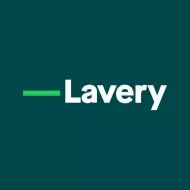In May 2011, the Quebec Government unveiled its vision for the sustainable development of the region located north of the 49th parallel, a vision that then took shape in the provincial budget announced on March 20, 2012. Investments of $80 billion projected to span over 25 years should translate into numerous business and financing opportunities for companies operating in a diverse range of industry sectors, including the development of natural resources. Quebec has initiated measures indicating its clear willingness to participate in the future benefits generated by projects launched by investors and promoters under the Plan Nord.
NORTHERN QUEBEC AS A FOCUS FOR LOCAL AND FOREIGN INVESTMENT
In its latest budget, the Quebec Government announced the creation of Ressources Québec. This specialized subsidiary of Investissement Québec could invest up to $1.2 billion in various projects over the next 5 years.
Some would argue that the Quebec Government should be careful to not cede any territory or resources to foreign interests. Thus, projects such as that of Wisco, a Chinese company planning to invest over $13 billion in iron ore extraction at Lac Otelnuk, provide an opportunity for the Government to foster community development while forging business partnerships.
NEW FINANCING POSSIBILITIES
While foregoing the nationalization of major assets in the north, the Government will still enjoy considerable leverage allowing it to preserve certain assets or select projects, or to influence project development. Within the scope of its mandate, Ressources Québec could negotiate three types of investments targeting the most promising projects according to return-on-investment objectives: (i) joint ventures; (ii) equity investments; and (iii) debt investments.
Investment in a project based on a joint venture model will allow for direct participation in the project. The joint venture investor can exercise tight control over the activity and its unfolding. However, the joint venture model comes with its own particular risks and responsibilities given that the investor is the beneficial owner of the project and that it must ensure that its partner, often the majority holder, exercises its rights of management in an exemplary manner and by consensus.
Equity interests in the form of investments in the capital stock of companies that develop projects provide investors with a flexible investment horizon. In the case of corporations listed on published markets, such investments often provide a liquid market in which investors can dispose of their equity interests. They also give investors in their capacity as shareholders some control over the affairs of the operating company, and they are sometimes accompanied by prerogatives respecting certain transactions which provide the possibility of sitting on the board of directors of the operating company as well as all the usual rights conferred by law to the shareholders of share capital corporations.
However, the investor's control is indirect as the project ultimately remains under the entity that has its own legal personality. Often, the investor's contribution will have little influence over the value of the shares versus the value of the assets constituting the project.
Debt investments, regardless of whether or not they are convertible into equity, can minimize an investor's risks, especially where the loan is secured by certain project-related assets. Without directly sharing the operator's business risks, the lender can obtain a return via interest on the loan. Even if he can require oversight authority respecting certain borrower activities, the lender does not usually play an active role in managing the project. Lastly, if he considers it advisable, the lender could require that its debt be convertible into an equity interest in the corporation with share capital.
THE SOCIÉTÉ DU PLAN NORD
As of August 1, 2012 when a general election was called, the members of the National Assembly were considering a bill aimed at establishing the Société du Plan Nord. Once created, the Société du Plan Nord will act as a guide for investors. It will ensure the coherent development of projects that fall within the framework of the Plan Nord by coordinating, among other things, government investments in strategic infrastructure development and by negotiating the financing arrangements for projects for which it will be responsible. Until such time as Bill 27 creating the Société du Plan Nord becomes law, a transitional office, which was created on July 30, 2012, will, in the short term, oversee the mandates and responsibilities that will eventually be assigned to the Société du Plan Nord. The recent election of a new government on September 4 could have an impact on the Plan Nord's deployment strategy, including the establishment of the Société du Plan Nord.
CONCLUSION
To summarize, the Quebec Government will have all the necessary tools to generate business opportunities in the territory covered by the Plan Nord, in cooperation with its financial and economic organizations and the government ministries involved. Therefore, this commitment by the Government should result in increased availability of capital for companies wishing to maximize the benefits generated by the development of projects in this territory.
The content of this article is intended to provide a general guide to the subject matter. Specialist advice should be sought about your specific circumstances.

